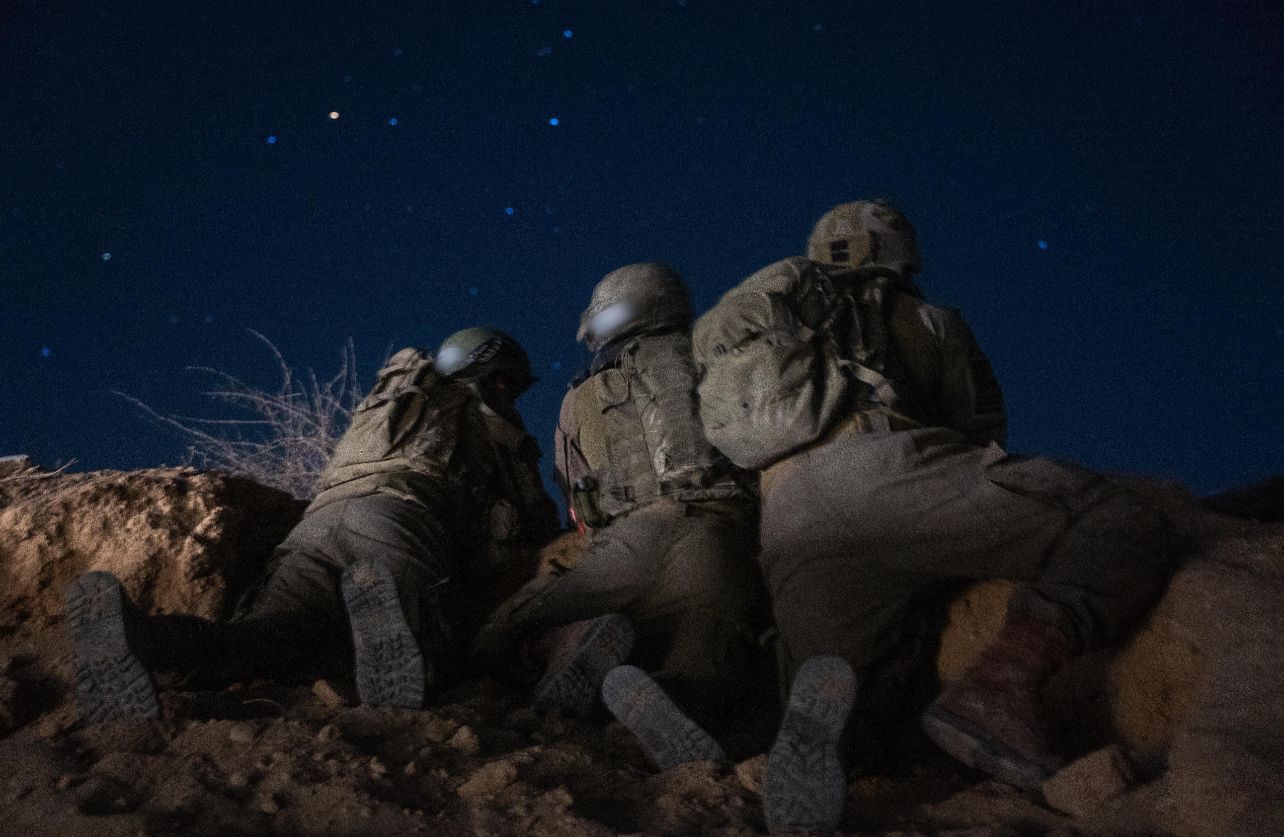



The Israel Defense Forces on Monday announced it was canceling a practice of adding four extra months of service for conscripted troops, but will extend deployment time for special forces units in the future, as the military looks to rebalance service terms to address a manpower crisis during the conflict in Gaza.
Since the beginning of the war, the IDF has delayed the release of conscripted ground troops and seamlessly transitioned their service into reserve duty for four additional months.
Starting in November, the IDF said it will cancel those extra four months, meaning that soldiers who were drafted in March 2023 will be released in November rather than March 2026.
However, soldiers in the special forces units who are currently in training will be required to serve an additional four months as “career soldiers,” starting in March 2027.
Additionally, troops who draft to special forces units in the future will be required to sign on for an additional eight months (in reconnaissance units) or a full year of service (in the commando units) as career soldiers.
Last month, the military said it was set to extend the service time for troops in selective units — including special forces, commando units, and the infantry brigades’ reconnaissance units — by a year, beyond the 30 months they currently serve, per a commitment that those soldiers had made upon enlisting. The policy in practice had not been enforced, and after outcry, the military backtracked from the move. Instead, IDF Chief of Staff Lt. Gen. Eyal Zamir appointed a committee headed by Maj. Gen. (res.) Amir Abulafia, a former head of the Planning Directorate, who on Monday presented a series of recommendations concerning service times.
Soldiers in the selective units who have completed their basic training, which normally takes a year or more, will also not have four months tacked on.
The IDF said the moves are intended to find a balance between the needs of the military for more troops and the “erosion” in the standing army after nearly two years of fighting. Therefore, the military said it does not intend to extend the service of those already in the army, but only for those in training or who have not yet been drafted.
The cost in the short term is one less team in the commando units and dozens of troops in the infantry brigades for a year. The military said it will make up the gap by bringing in reservists.
Also Monday, Prime Minister Benjamin Netanyahu, Defense Minister Israel Katz, and Finance Minister Bezalel Smotrich said the government approved new tax benefits for reserve soldiers, in a statement recorded during a cabinet meeting earlier in the day.
The decision will grant income tax credit points to combat reservists on a graduated scale based on the number of days served, according to the Prime Minister’s Office.
“Today, we’re delivering additional benefits to reservists — who truly deserve everything we can give them,” Netanyahu said in the video message published by the Prime Minister’s Office.
The move came amid growing complaints of fatigue among reservists who spent much of the last two years fighting instead of spending time with their families or working, putting major strains on emotional health and financial wellbeing. Officials have reported declining turnout rates among called-up reservists in recent months, which in addition to fatigue and economic hardship has been attributed to outrage over ongoing Haredi draft exemptions and a deepening lack of faith in the government as the war sparked by the Hamas-led October 7, 2023, attack drags on.
The plan, according to the Prime Minister’s Office, will grant income tax credit points to combat reservists based on the number of days they served during the previous tax year. The benefit will follow a graduated model: those who served between 30 and 39 days will receive half a tax credit point; those who served between 40 and 49 days will receive three-quarters of a point; and those who served 50 days will be eligible for one full credit point. For every additional five days of service beyond that, reservists will receive an added quarter-point, up to a maximum of four credit points per year, potentially amounting to thousands of shekels annually, according to the Prime Minister’s Office.
“The message is that from now on, being a reservist in Israel is a status the state is committed to. Reserve soldiers are deployed on every front — from the aircraft that struck in Iran, to tunnel warfare in Gaza, to counterterror operations in the West Bank, and to halting terror in Syria, Lebanon, and beyond… Today, we are cementing their status with this decision,” Katz added.
Last month, IDF Chief of Staff Lt. Gen. Eyal Zamir reportedly ordered a 30 percent reduction in the number of reservists deployed to active combat zones in the coming months to address the issue.
Times of Israel staff contributed to this report.


